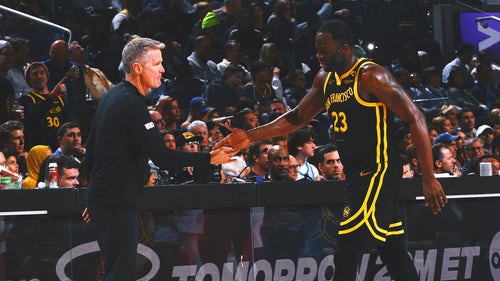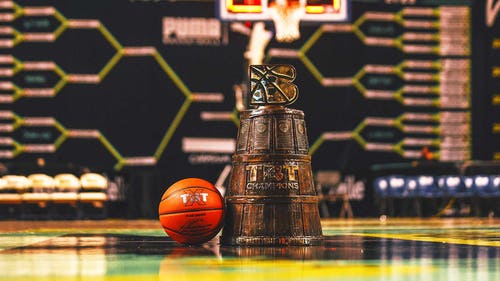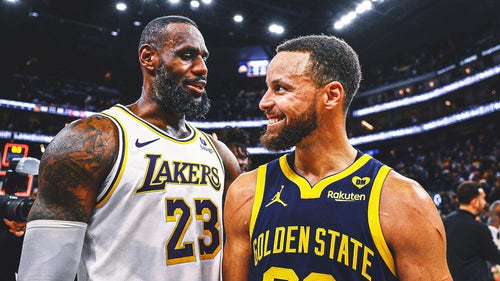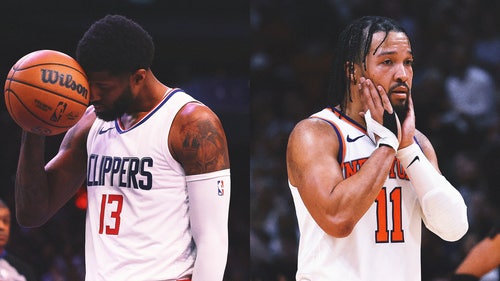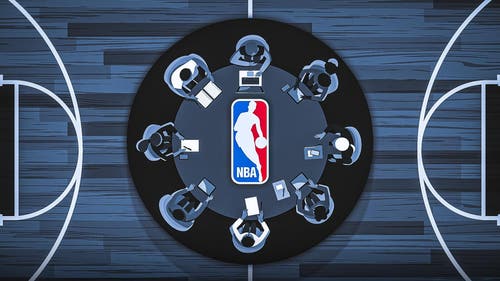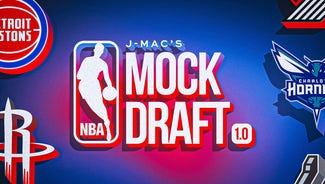
Utah Jazz: Veterans Need To Step Up For Playoffs
The Utah Jazz made a number of moves last offseason to acquire veteran talent. With the playoffs fast approaching, they'll need those players to ramp up their play.
In between the months of May and August, the Utah Jazz made a number of offseason moves, as all NBA teams do.
After pulling a shrewd draft trade that netted them George Hill from the Indiana Pacers, they were able to use their limited cap space to sign Boris Diaw and Joe Johnson, who between them have more than 30 years of NBA service.
Sports Illustrated graded them out at an A-plus for the offseason, citing the added veteran talent and playoff experience as a major plus to a franchise on the rise.
The Jazz have fortified their rotation by adding 1) George Hill, a quality starting point guard who fits their defense-first approach, 2) Joe Johnson, a past-his-prime wing who can still stretch the floor and give minutes, and 3) Boris Diaw, another aging vet with playoff experience who should help Utah match-up more effectively with spread teams.
Diaw and Johnson were never meant to be major pieces, as evidenced by their shorter and less expensive deals (three years and $29 million guaranteed between the two).
However, as mentioned above, both players did fill critical roles — Diaw receiving minutes over Trey Lyles, who has struggled in his sophomore campaign, and Johnson as a versatile wing who can play anywhere from shooting guard to power forward.
Other than these two players, who have appeared in 209 playoff games, the Jazz roster has 108 postseason contests under their belt.
Most of these come from Shelvin Mack, who reached the postseason three times with the Atlanta Hawks, and George Hill, who has reached the playoffs almost every year of his career with the Pacers and San Antonio Spurs.
Derrick Favors, Gordon Hayward and Alec Burks are the only members of the team left from Utah's last playoff run, one that was ended in four games back in 2012.
There's a lot of inexperience among the main cogs of the Jazz's workings, and they'd strongly like to avoid the jitters that could come with having the spotlight turned up for the first time.
So far, Diaw has been called upon more than what would have been predicted before the season, playing 17.5 minutes per game and starting 31 contests. This has not been a result of the strength of his play, rather, the Jazz's other big men have been felled by injuries.
Having shot greater than 36 percent from behind the arc in three of his last four seasons, Diaw's outside shooting has been the biggest blemish on his year with the Jazz. He's shooting just 25 percent from three-point range as well as the tricky long two-point jumper outside of 16 feet.
jazz
Clipperholics 1 dLA Clippers: What Mo Speights can do against the Utah Jazz
More headlines around FanSided:
1 d - Finding The NBA Coach Of The Year Award Winner1 d - Utah Jazz: Rudy Gobert Gets Some DPOY Love From the Associated Press1 d - 2016-17 NBA Power Rankings: Final Rankings In Week 251 d - Five Big Questions Concerning The 2016-17 All-NBA Teams1 d - Utah Jazz at Golden State Warriors: Keys to the GameMore News at Purple and Blues
According to Basketball-Reference, he has the worst defensive rating on the team with 110, but does grade out well defending spot-ups, ranking in the 83rd percentile, per Synergy.
In other areas on defense, he's a disaster at times, getting caught on screens or lost due to his lack of agility.
The Frenchman is a prolific passer – although he only averages 2.3 assists per game, his 20.2 assist rate is the highest it's been since 2011-12. This places him third on the team, behind point guards Hill and Mack.
This places him third on the team, behind point guards Hill and Mack.
Rudy Gobert is often the beneficiary of many of these interior dimes, as he shoots 81.1 percent off of passes from Diaw, most of them dunks and tough finishes around the restricted area.
Of course, there are those games in which the best elements of Diaw are showcased. Against his former team, the Spurs, on April 2nd, he more or less carried the Jazz offense, scoring 19 points on perfect nine-for-nine shooting.
This included his usual diet of funky post-ups, catch-and-shoot jumpers, and bumbling drives to the hoop that somehow end up with a layup.
At 34 years old, expecting Diaw to play like his old self is a fool's errand. However, given his history with the Spurs, there's always the belief that a heady player like Diaw is conserving energy during the regular season for when he's needed most.
Johnson, who recently scored his 20,000th NBA point, has been a big-time scorer for virtually every season of his 16-year career, so it's a bit of a surprise to see him at just 9.1 points per game this year.
This is his lowest output in that category since his rookie season, although it also occurs on his lowest minutes and third-lowest usage rate of any season.
Given that his shot-creating abilities have mostly left him, Johnson is mostly a catch-and-shoot perimeter player now, with over 40 percent of his attempts coming from three-point range.
He's hit on 41 percent of his catch-and-shoot threes, that mark ranking in the 82nd percentile, according to Synergy.
Much like Diaw, the little amount of quickness Johnson still possesses does not make him an effective defender chasing foes around screens and walling off the paint, as his defensive rating of 108 puts him near the bottom of the pile as well.
More from Hoops Habit
The Los Angeles Clippers, and looking farther ahead, the Golden State Warriors, like to go small at times, with players like Luc Mbah a Moute, Wesley Johnson, or Kevin Durant at the power forward spot.
Johnson has the tools to play the four against the right matchups, which could make this scenario interesting.
Due to injuries, it's not a lineup that has been run out often, but coupling Johnson with the normal starters minus Favors has paid dividends, posting a 28.4 net rating in 62 minutes.
His duties will be varied – one moment he may be asked to play off-ball as a two-guard, the next he'll need to bang inside with a post player.
In his last three seasons, Johnson has averaged just over 16 points per game in the postseason. Clearly, he ups his game when the stakes become higher, which should be good news for the Jazz front office that signed him to do so.
Gordon Hayward and Rudy Gobert are the engines that make the Jazz go, but they'll need contributions from virtually every player if they hope to go far in the postseason.
Johnson and Diaw have a wealth of valuable experience that they can use to teach their younger teammates or exhibit on the court. Regardless, the Jazz will need them to step up and show out on the season's biggest stage.








































































































































